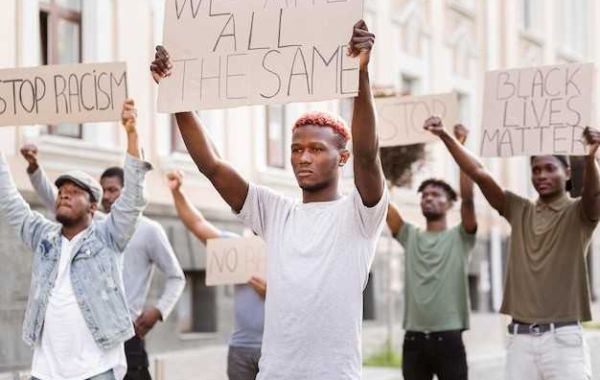According to the United Nations, effective and adequate reparations are intended to promote justice by redressing gross or severe international humanitarian law violations. In essence, it is a step forward in righting the wrongs of people who have suffered.
We are currently seeing efforts being prioritized to streamline reparations for Black Americans. In 2023, California played an integral role in this case. The state's reparations task force spent two years conducting rigorous research inspecting the impact of generational damage of discriminatory practices, producing a 1,100-page report furnishing Americans with a blueprint for other cities and states, including the federal government. The file includes a revolutionary method that helps calculate the financial compensation for those eligible for redress. Before this, Evanston, Illinois, became the first city and country in 2021 to pay reparations to eligible Black residents.
Efforts like these are crucial to set the trend and help America find a solution to the ever-growing problem of the racial and economic divide. However, we must educate ourselves on reparations and, most importantly, the history behind the efforts being made.
So, let's ask ourselves the all-important question, "How did we get here?"
TV veteran, film writer, esteemed essayist, and author K. Snyder brings forth a riveting book that is your guide to understanding the issue of reparations in America, the possible solutions, and the history of reparations.
It all started when the first English settlement was established in Jamestown, Virginia, in 1607, where the groundwork for the African holocaust had been laid. At this time, the English followed the Spanish on the trend of enslaving Africans to help them fulfill their commercial needs. And just like that, this financial machinery evolved into a behemoth of an industry spanning continents, which would fuel the global economy for generations. The industries benefitting would include agriculture, textile production, and shipping, to name a few, all at the expense of innocent African brothers and sisters being degraded, humiliated, and forced to carry out errands.
In his book, K. Snyder also lists down the various companies that profited from the slave trade and the endeavors involving the use of African Americans. Some companies, including The Royal African Company and Lloyd's of London, were highly profitable. The Barclays Bank PLC also played a vital role in financing the transatlantic slave trade.
The facts are all there, and so are the monetary figures that would help calculate what the families of those enslaved deserve to receive. But, regarding reparations, it's not just about the money. Reparations aren't just compensation, but a gesture to let the affected know they are heard. It is a seed sown in hopes of a tree that produces a fruitful future for America.
But for that, we must verse ourselves with the knowledge required to bring about change.
Reparations 101 is now available on Amazon.







